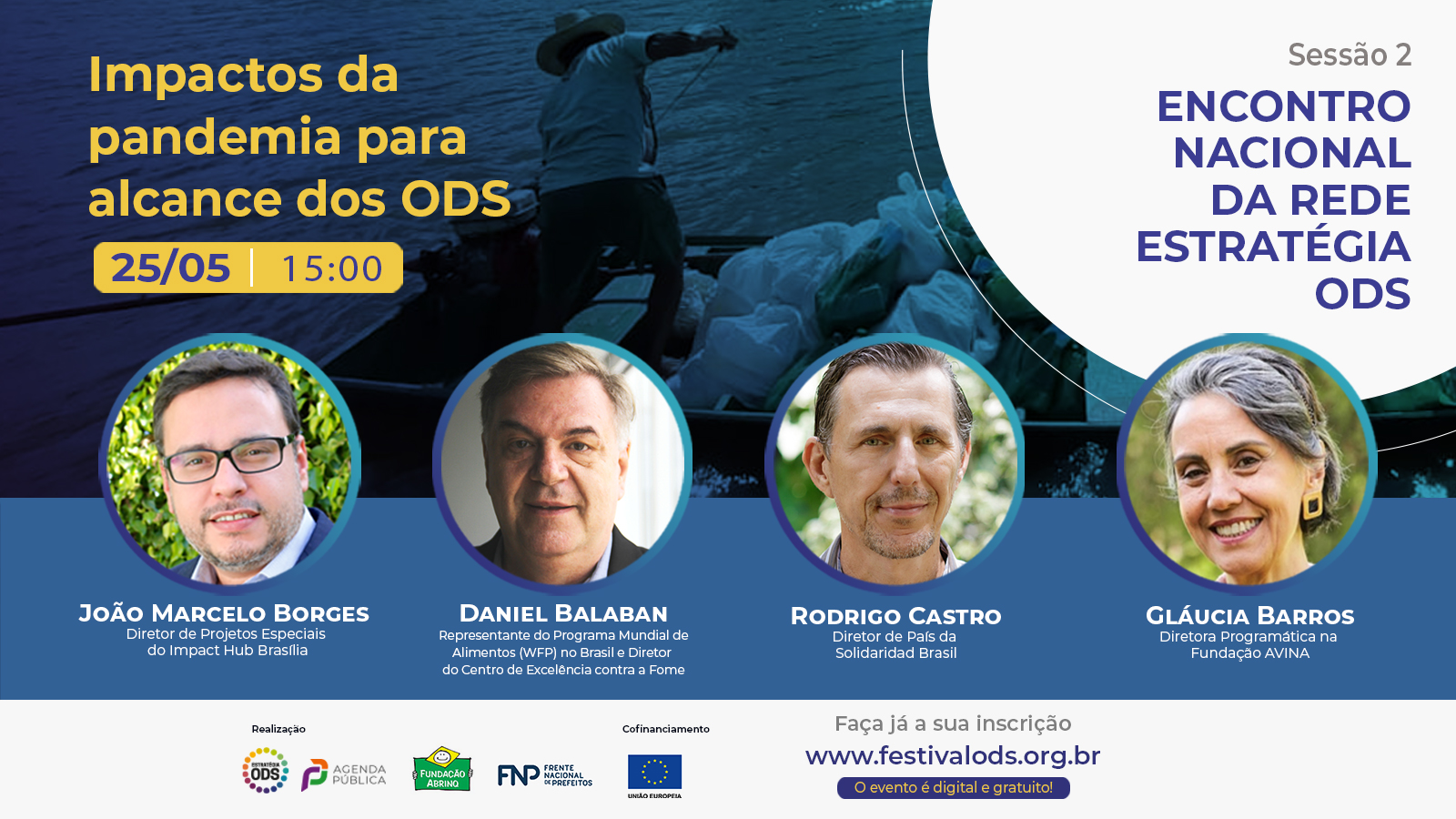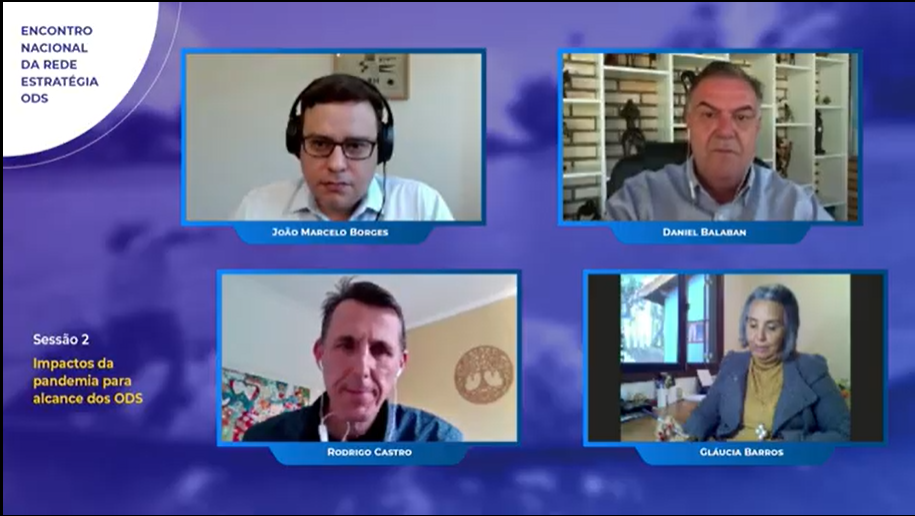
What are the impacts arising from the COVID-19 pandemic in relation to the targets of the Sustainable Development Goals, the SDGs? This was the question that guided a debate on the impacts of the COVID-19 pandemic on the 2030 Agenda for Sustainable Development, which took place on Tuesday, May 25th. Participants included Daniel Balaban, Director of the WFP Centre of Excellence against Hunger; João Marcelo Borges, Researcher at the Centre for Public Management and Education Policies Development within the Getúlio Vargas Foundation (FGV); Rodrigo Castro, Director of Solidaridad Brasil; and Gláucia Barros, Programme Director of the SDG Festival.
In his speech, Daniel Balaban warned about the high number of people living in food insecurity around the world, which reaches 690 million. In Brazil, according to data from the National Survey on Food Insecurity in the COVID-19 pandemic context in Brazil, developed by the Brazilian Network for Research on Food Sovereignty and Security (PENSSAN Network), 55.2% of Brazilians live with some degree of food insecurity, which is equivalent to 116.8 million people. Of these, 19.1 million (9% of the population) suffer from severe food insecurity or hunger. “Hunger is a reflection of the number of people below the poverty line, so it means that more people on the planet are below that line and are unable to acquire food for themselves and their families. At the same time, the planet has returned to concentrating income. We live in an increasingly unequal world,” said Daniel Balaban.
He also recalled that the pandemic did not bring hunger back but accelerated the process. The increase in food insecurity is a process that is also linked to rising food prices, stagnant wages, and rising inflation, as well as less incentive to public policies, such as the Food Acquisition Programme (PAA) and the Cisterns Programme. According to Daniel Balaban, social mobilization for food donation and delivery is important at this moment, but it is also necessary to think about more strategic solutions. “We have to think about investing in social and public policies again, so as to tackle the causes of this situation and to put the country back on the path of sustainable development and fighting poverty,” he concluded.

João Marcelo Borges, Researcher at the Centre for Public Management and Education Policies Development within the FGV, spoke about the pandemic’s impacts on the achievement of education-related goals, especially SDG 4. According to him, the world had been observing an improvement in some indicators, such as an increase in enrolment levels. The pandemic, however, has affected a few specific groups, such as younger children and young people who are finishing high school or starting college. “The pandemic has affected education and the effects will be felt for many decades to come, with an influence on health, public safety, productivity, and the development of countries,” he said.
Rodrigo Castro, Director of Solidaridad Brasil, a non-profit organization that works globally to provide sustainability and economic inclusion of smallholder farmers, spoke of promoting sustainable agriculture, which is part of SDG 2. “We need to continue to produce food for a population that needs to eat better, improving food access and quality,” he said. “This also involves working on the impacts of food production on the environment, ” he added.
The 2nd edition of the SDG Festival, organized by Agenda Pública and Estratégia ODS, took place on May 25th and 26th. Experts, representatives of civil society, governments, companies, and international organizations took part in several virtual debates over various topics related to the 2030 Agenda for Sustainable Development, such as the fight against hunger and the promotion of sustainable agriculture. Learn more here.




